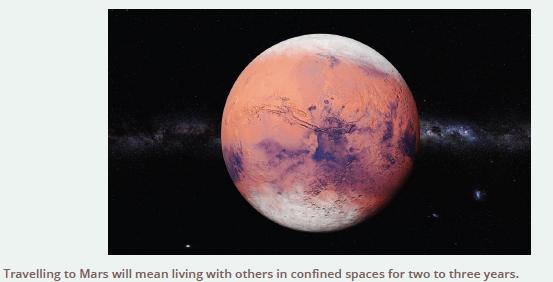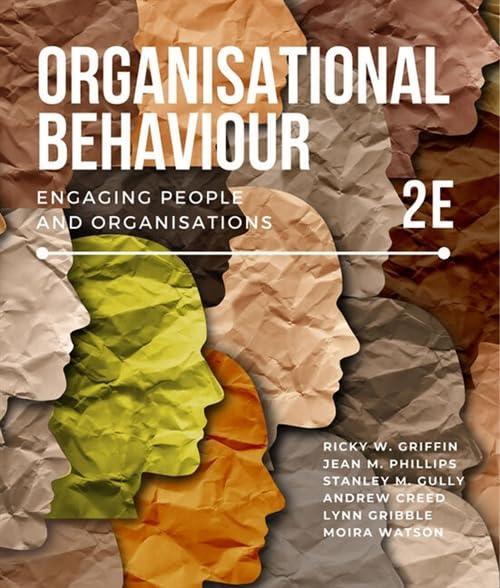Over a half century ago the first humans walked on the moon. Since then, government agencies such
Question:
Over a half century ago the first humans walked on the moon. Since then, government agencies such as the American National Aeronautics and Space Administration, Russia’s Roscosmos, the China National Space Agency, the European Space Agency, the Indian Space Research Organisation, the Japan Aerospace Exploration Agency and, most recently, the New Zealand Space Agency and the Australian Space Agency, have been variously considering ways in which teams can operate in space. With the planned manned flight to Mars to take place in a decade,1 it is recognised that the crew members will have to sustain team performance for two to three years in space, which is comparable to operating for a very extended period in isolated, confined and extreme environments such as at high-altitude, deep sea or polar sites.2 Long-duration space exploration will require multidisciplinary teams to work in extreme and dangerous outer-space conditions, cope with limited communication with family and co-workers on Earth, deal with very high levels of physical and psychological stress and long durations of monotonous and boring inactivity, and accept they are unable to leave their team or their context until the mission is over

Question:
Imagine that you have been asked for your advice on how a six-person team could best be prepared to function effectively and efficiently on a two- to three-year mission to Mars and back. What would you recommend?
Step by Step Answer:

Organisational Behaviour Engaging People And Organisations
ISBN: 272389
2nd Edition
Authors: Ricky W. Griffin, Jean M. Phillips, Stanley M. Gully, Andrew Creed, Lynn Gribble, Moira Watson





